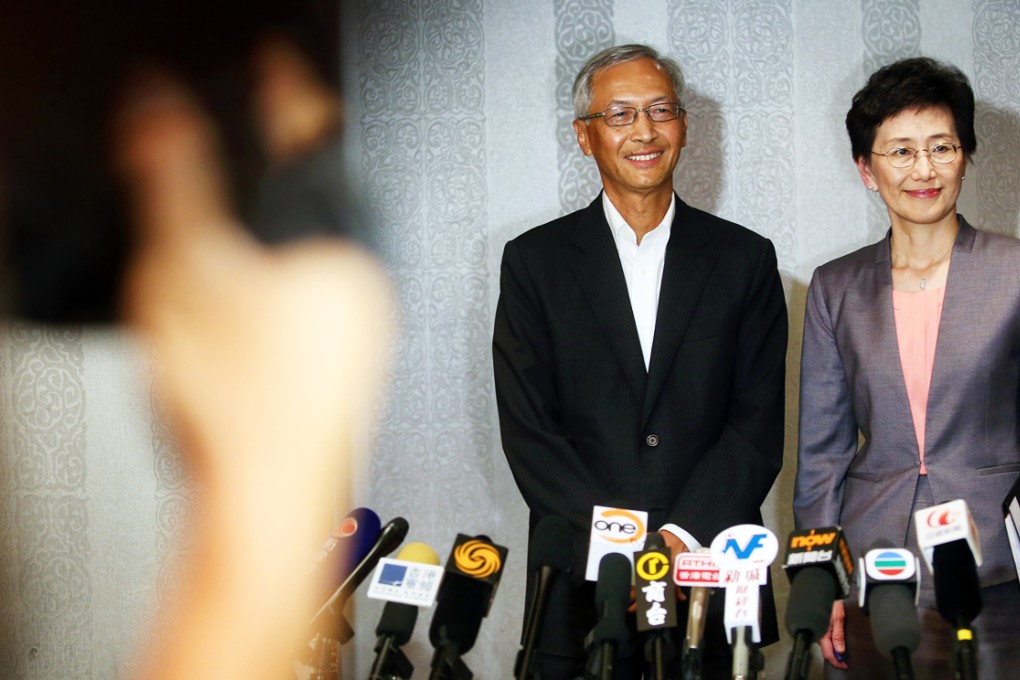Hong Kong's Urban Renewal Authority stuck in crisis of confusion
Uncertainty over the role and direction of the controversial authority has led to conflicts and the resignation of the managing director

The sudden resignation of the Urban Renewal Authority's managing director has further exposed conflicts over the role of the organisation, which has been struggling under increasing financial pressure and public expectations of its mandate.
Rising compensation amounts, efficiency of flat acquisition, staff size and revitalisation projects have been areas of discord between URA chairman Victor So Hing-who and staff headed by outgoing managing director Iris Tam Siu-ying over the past two years.
A draft review report presented late last year which was critical of her team, has fuelled her discontent, according to serving and past members of the board.
On the instruction of Financial Secretary John Tsang Chun-wah in late 2013, the URA commissioned a study to review its operations.
Two people with knowledge of the draft report said it was critical of the URA's management, particularly casting doubt on the cost-effectiveness of its expanding staff.
Tsang has since told the URA to be more prudent with its finances, the sources said.